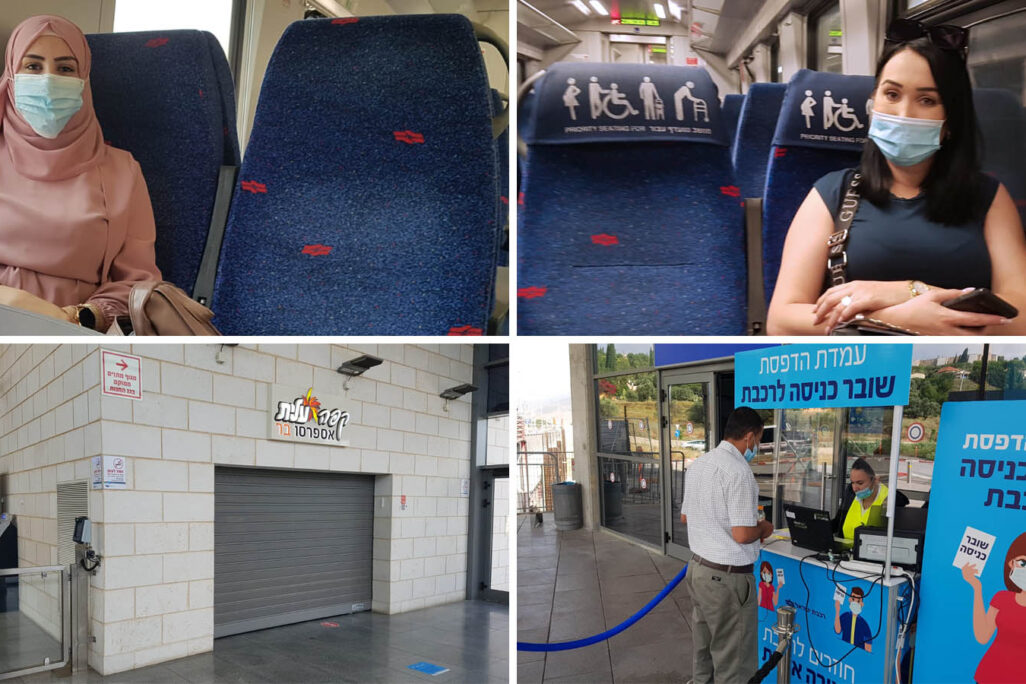
"I feel safe. There’s this imbalance – on the train, everyone adheres really strictly to the guidelines, but in the rest of the country everything is relaxed," Theresa, a 63-year-old social worker, describes the atmosphere on the debut train from Carmiel to Haifa. Trains in Israel, a usually popular and reliable means of transportation, weren’t in service for three months. In keeping with the COVID-19 protocol – as well as to address the public’s fears – trains leaving from stations in the north of Israel were relatively empty, and passengers kept public safety standards, including masks and social distancing.
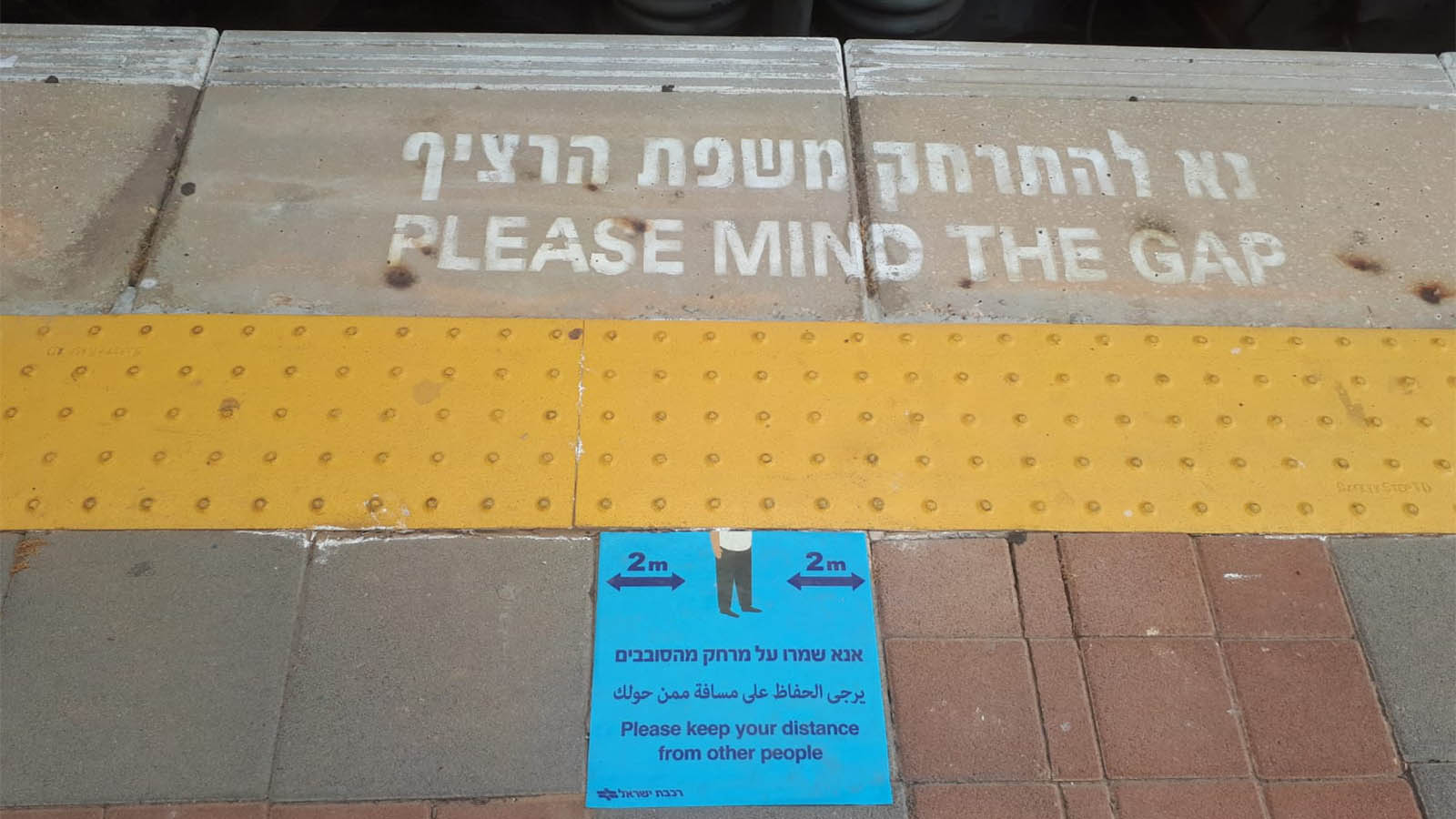
Prior to COVID-19, passengers could buy train tickets at any point before their trip. But with the re-opening of the Israeli railway system comes a new set of protocols. Now, passengers must reserve a spot on the train ahead of time, which can be done online or on the Israel Railways application up to 48 hours in advance of departure.
Reservations can also be made by calling the Customer Service Center at *5770, or at newly-established reservation counters in major stations around the country. The reservations are then sent to passengers via SMS or via email, who must then print or present them via the application upon entering the train station. Passengers who miss their trains can reserve a spot on the next one, provided that train hasn’t surpassed the five-hundred-passenger limit.
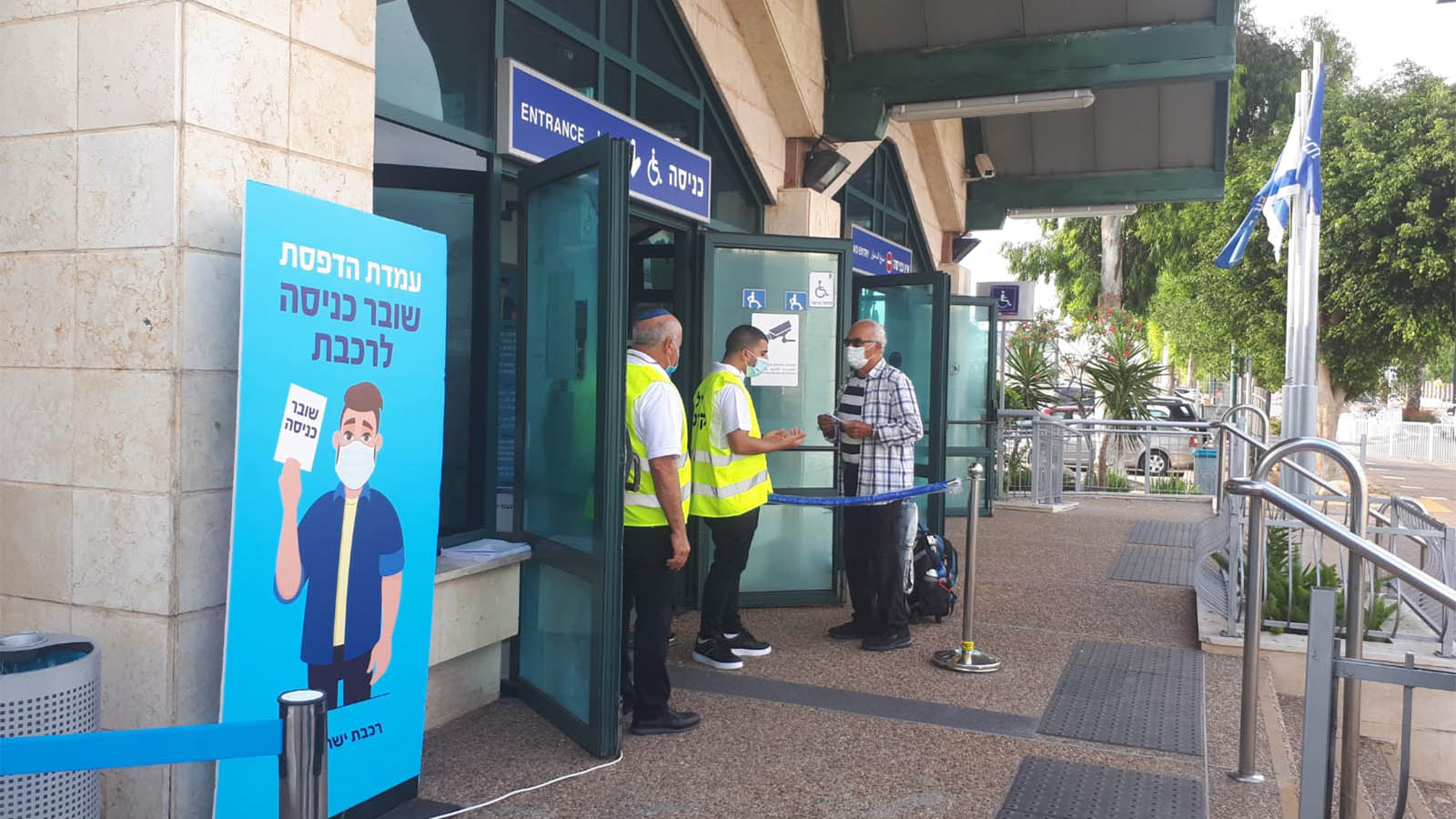
At the entrance to the train station in Acre yesterday, Israel Railways workers were ready to admit passengers. Outside the station were two counters where passengers could confirm their reservations. On the train, inspectors in yellow vests ensured that passengers wore masks and remained two meters apart from one another. In accordance with the Ministry of Health guidelines, the refreshment kiosks inside the train stations remain closed.
Dimitri Mordochovich, 42, a software engineer from Haifa, traveled from Haifa to Tel Aviv area, saying: "I'm not afraid of the train ride, I feel safe and healthy. The entrance to the station was neat and organized."
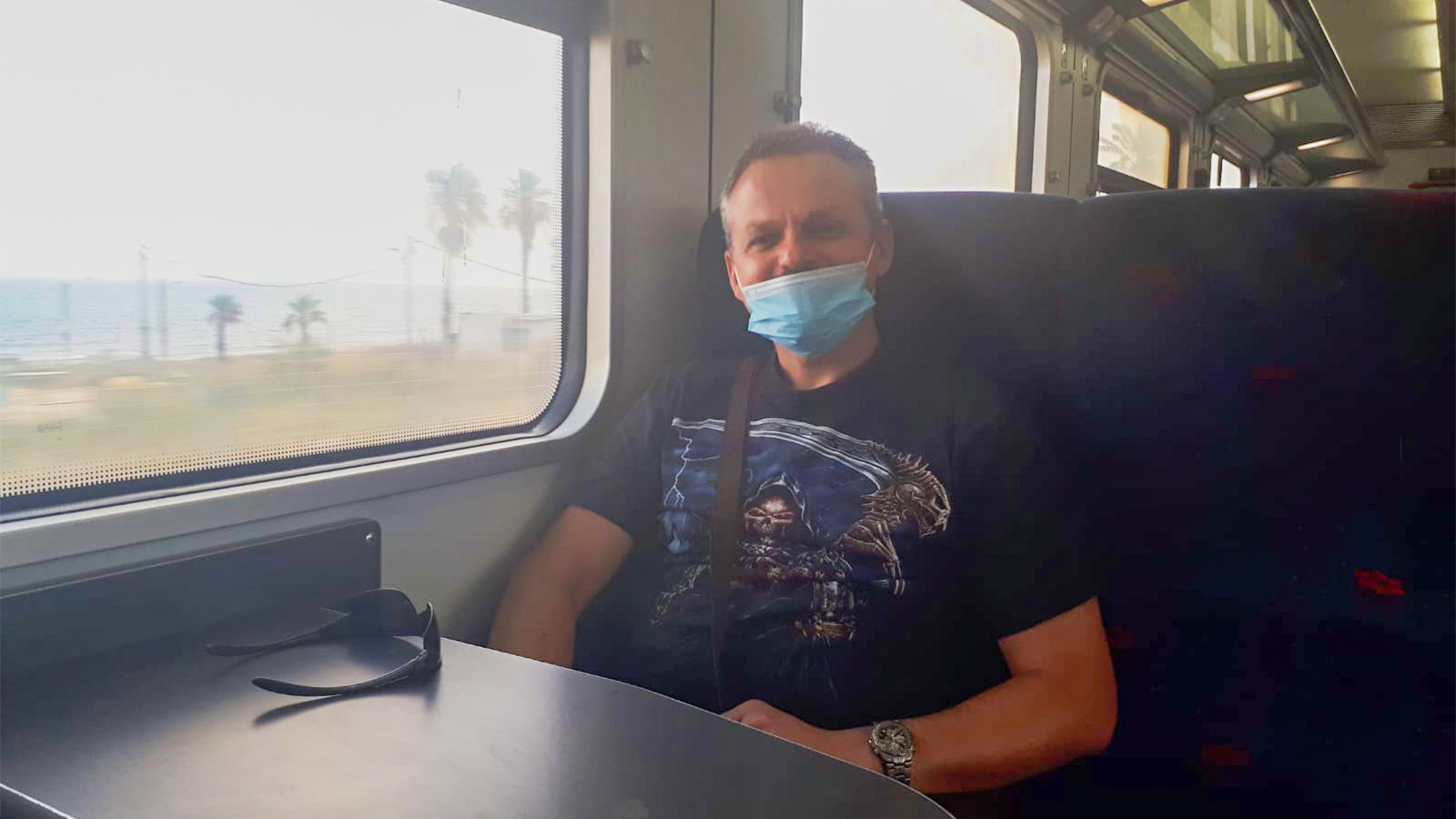
Lucal Badrena, 28, of Sakhnin, is tired of looking for parking at the Technion's Faculty of Medicine, where she is a student. "It was hard without trains," she says. "I'm afraid to be exposed [to the virus], but I understand how to deal with these conditions."
For Regina Butrellin, 36, of Carmiel, the train’s premier run coincided with her return to work after finishing her maternity leave. “I’m scared of the train like I’m scared of everywhere else – I manage a shoe store, and at work I come into contact with people every day.”
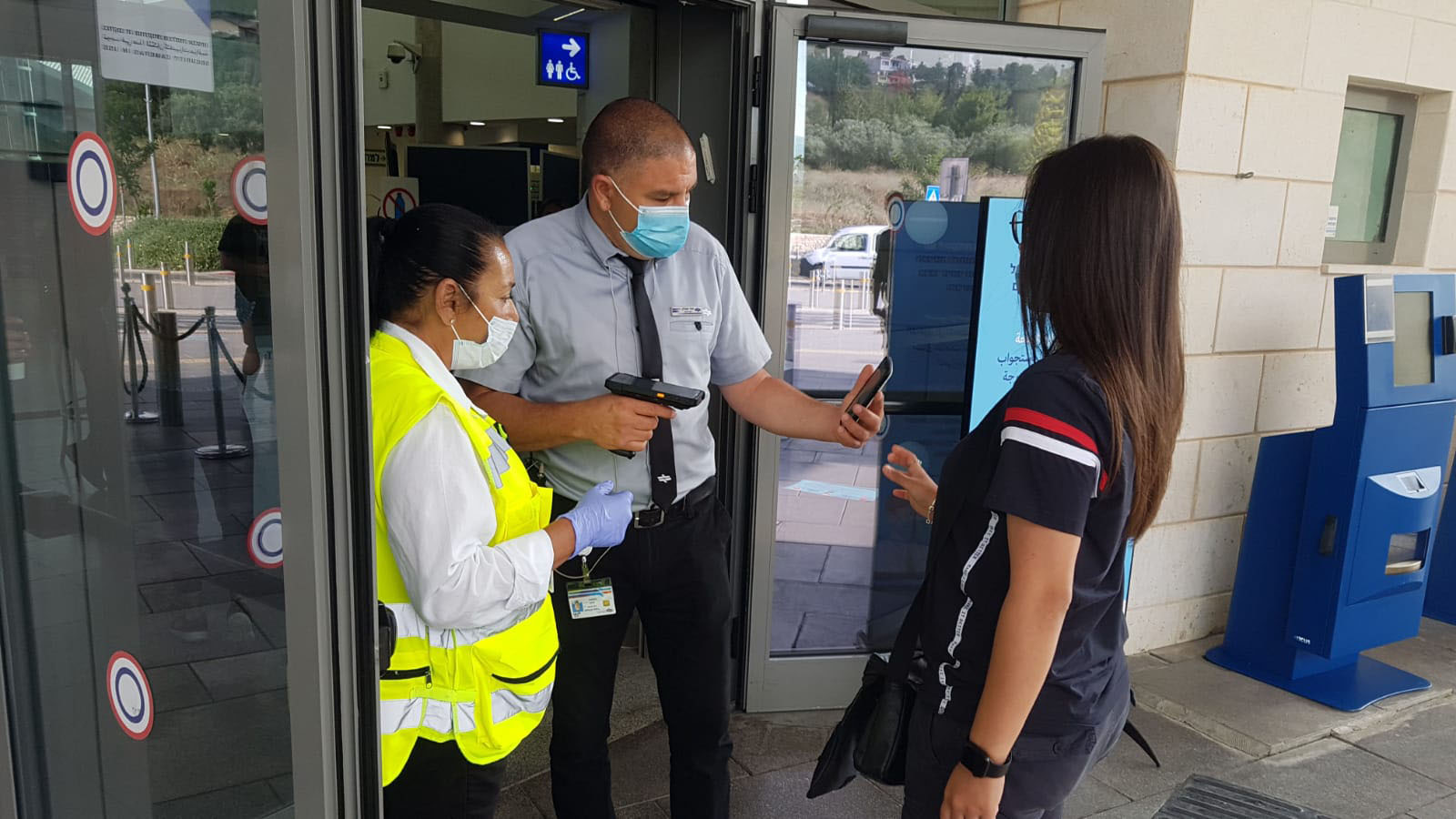
Nitzan, 32, from Acre, traveled to work in Tel Aviv: "I’m really excited to take the train. I don’t get how empty it is. I expected people to jump at the opportunity. I spent the last two weeks in traffic jams and congestion. They shut down the Ayalon highway, against all common sense, which made the buses so crowded. Trains are the best solution we have."
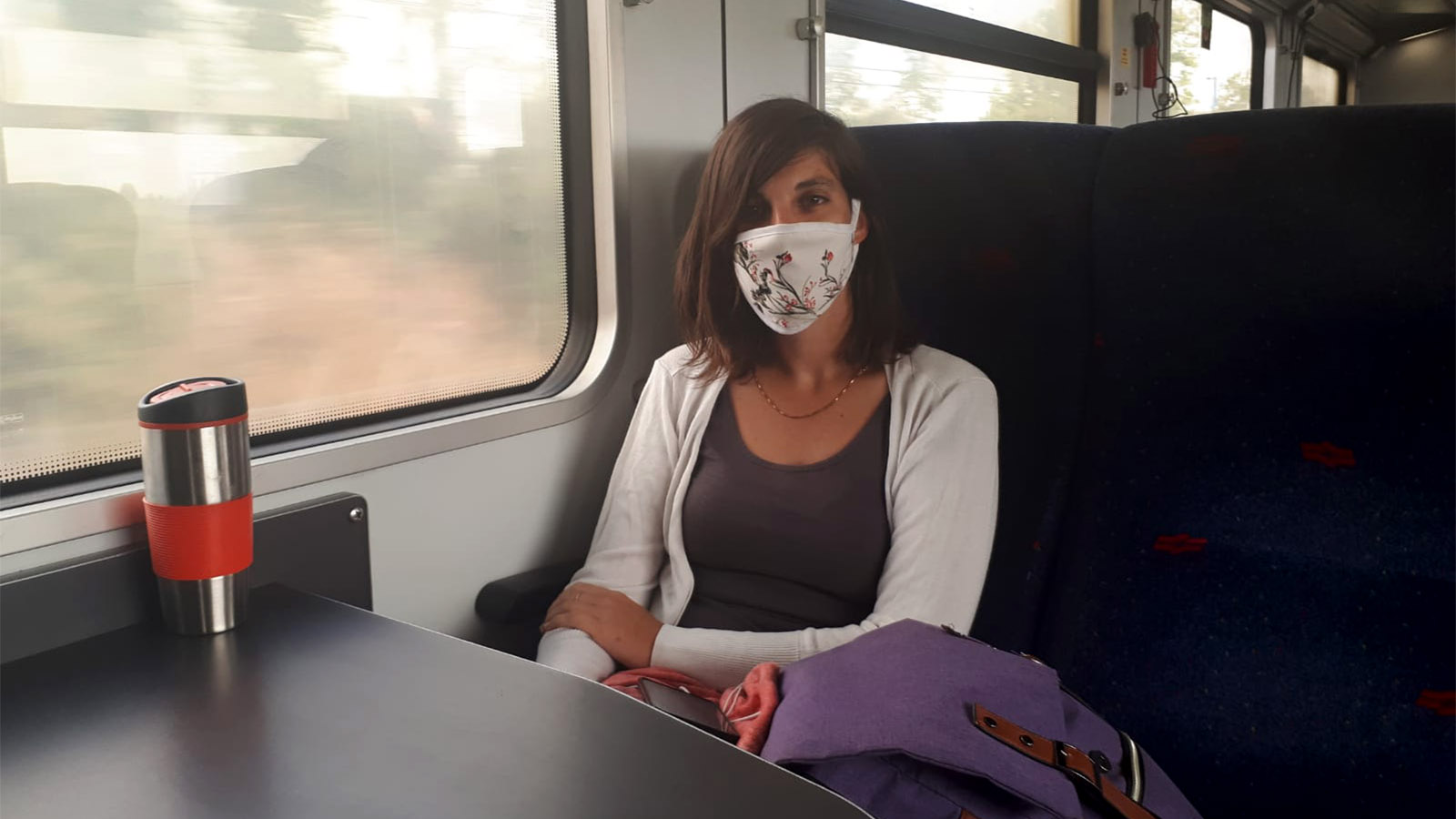
Vitaly Skvirski, 32, from Haifa, is an architect who has worked in Binyamina for the past few months. As Skvirski explains, "I’ve been taking the bus. The problem isn’t just how long it took, the problem is how often the buses run.”






